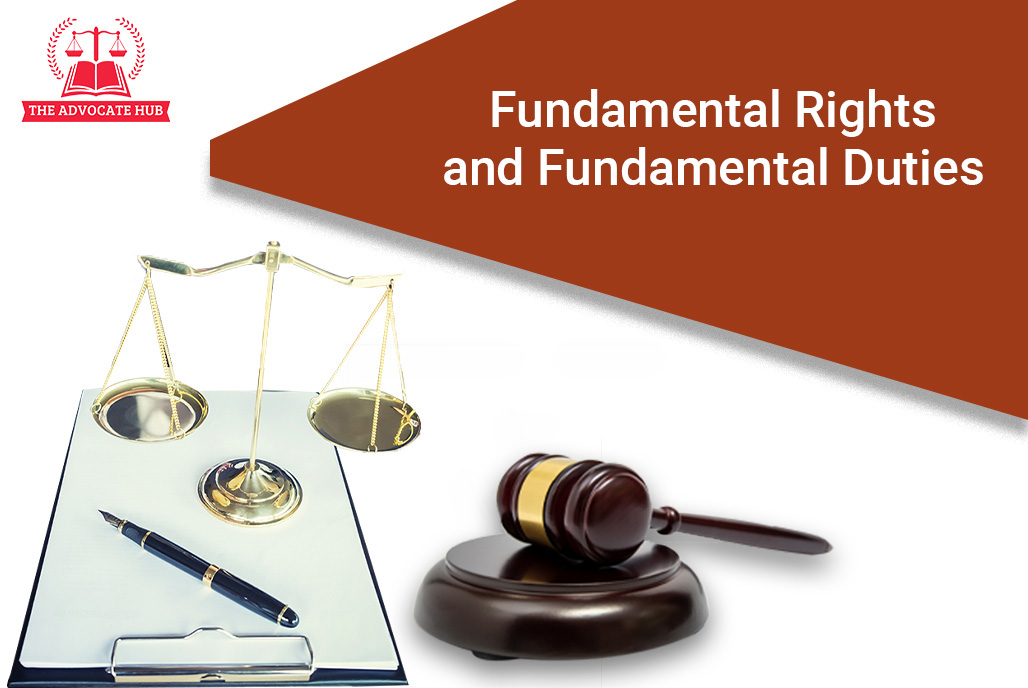The Indian Constitution, adopted on January 26, 1950, is the supreme law of the land. It lays down the framework demarcating the powers, duties, and structure of the government and guaranteeing certain rights to the citizens. Among its most significant features are the Fundamental Rights and Fundamental Duties, which together encapsulate the essence of the relationship between the state and its citizens. These provisions aim to ensure the dignity of individuals and foster a sense of responsibility towards the nation.
Fundamental Rights
Fundamental Rights are the basic human rights enshrined in the Constitution of India that are guaranteed to all citizens. These rights are considered essential for the holistic development of individuals and the realization of their potential. They are justiciable, meaning individuals can approach the courts for their enforcement if violated.
Categories of Fundamental Rights
The Fundamental Rights are grouped into six broad categories as outlined in Part III of the Indian Constitution:
Right to Equality (Articles 14-18)
- Article 14: Guarantees equality before the law and equal protection of the laws within the territory of India. It implies the absence of any special privileges in favor of any person and ensures equal treatment for all.
- Article 15: Prohibits discrimination on grounds of religion, race, caste, sex, or place of birth. It also allows the state to make special provisions for women, children, and socially and educationally backward classes, including Scheduled Castes and Scheduled Tribes.
- Article 16: Ensures equality of opportunity in matters of public employment. It prohibits discrimination on the grounds mentioned above, ensuring that no citizen is ineligible for employment or office under the state based on these criteria.
- Article 17: Abolishes “untouchability” and forbids its practice in any form. It makes the enforcement of any disability arising out of untouchability an offense.
- Article 18: Abolishes titles except for military and academic distinctions. It prevents the state from conferring any title on any citizen and foreign titles from being used as a form of distinction among citizens.
Right to Freedom (Articles 19-22)
- Article 19: Protects six freedoms:
- Freedom of speech and expression: Enables an individual to freely express their thoughts and opinions.
- Freedom of assembly: Allows people to gather peacefully without arms.
- Freedom of association: Permits forming associations or unions.
- Freedom of movement: Allows moving freely throughout the territory of India.
- Freedom of residence: Enables residing and settling in any part of India.
- Freedom of profession: Permits practicing any profession or carrying on any occupation, trade, or business.
- Article 20: Provides protection in respect of conviction for offenses, including:
- Protection against ex post facto laws: No person shall be convicted of any offense except for violation of the law in force at the time of the commission of the act.
- Protection against double jeopardy: No person shall be prosecuted and punished for the same offense more than once.
- Protection against self-incrimination: No person accused of any offense shall be compelled to be a witness against themselves.
- Article 21: Guarantees the right to life and personal liberty. This article has been interpreted expansively by the judiciary to include the right to live with dignity, right to health, right to education, right to a pollution-free environment, and more.
- Article 21A: Mandates free and compulsory education for children aged 6 to 14 years. This was added by the 86th Amendment Act of 2002.
- Article 22: Provides protection against arrest and detention in certain cases. It includes:
- Right to be informed of the grounds of arrest.
- Right to consult a legal practitioner of one’s choice.
- Right to be produced before a magistrate within 24 hours of arrest.
- Protection against detention beyond the said period without the authority of the magistrate.
Right against Exploitation (Articles 23-24)
- Article 23: Prohibits human trafficking and forced labor. It includes a prohibition on begar (forced labor without payment) and other forms of forced labor.
- Article 24: Prohibits the employment of children below the age of 14 in factories, mines, and other hazardous employment. This aims to protect children from exploitation and ensure their right to education and development.
Right to Freedom of Religion (Articles 25-28)
- Article 25: Guarantees the freedom of conscience and the right to freely profess, practice, and propagate religion. This right is subject to public order, morality, and health.
- Article 26: Ensures the freedom to manage religious affairs. Every religious denomination has the right to establish and maintain institutions for religious and charitable purposes, manage its own affairs in matters of religion, and own and acquire property.
- Article 27: Prohibits compelling any person to pay taxes for the promotion or maintenance of any particular religion or religious denomination.
- Article 28: Allows religious instruction in educational institutions maintained by religious groups. However, no religious instruction shall be provided in any educational institution wholly maintained out of state funds.
Cultural and Educational Rights (Articles 29-30)
- Article 29: Protects the interests of minorities by allowing them to conserve their culture, language, and script. It also ensures that no citizen shall be denied admission into any educational institution maintained by the state or receiving aid out of state funds on grounds of religion, race, caste, language, or any of them.
- Article 30: Grants minorities the right to establish and administer educational institutions of their choice. The state shall not discriminate against any educational institution on the grounds that it is under the management of a minority, whether based on religion or language.
Right to Constitutional Remedies (Article 32)
- Article 32: Empowers individuals to move the Supreme Court for the enforcement of Fundamental Rights. This right to constitutional remedies is a cornerstone of the Constitution and has been described by Dr. B.R. Ambedkar as the “heart and soul” of the Constitution. The Supreme Court has the power to issue writs, including habeas corpus, mandamus, prohibition, quo warranto, and certiorari for the enforcement of these rights.
Significance of Fundamental Rights
Fundamental Rights are critical in safeguarding the liberty and dignity of individuals. They act as a check on the arbitrary powers of the state, ensuring that democracy is not reduced to mere majoritarianism. They promote social equality by providing a level playing field for all citizens, regardless of their background. Additionally, these rights are a prerequisite for the proper functioning of democracy, as they empower citizens to participate actively in the political process. The Supreme Court of India has played a crucial role in interpreting and expanding the scope of these rights through its landmark judgments.
Fundamental Duties
While Fundamental Rights emphasize individual liberties and entitlements, Fundamental Duties focus on the responsibilities of citizens towards the nation and society. These duties were incorporated into the Constitution by the 42nd Amendment in 1976, under Article 51A, inspired by the Constitution of the erstwhile Soviet Union.
List of Fundamental Duties
Article 51A outlines ten Fundamental Duties, which are moral obligations for every citizen to help promote a spirit of patriotism and to uphold the unity of India:
- To abide by the Constitution and respect its ideals and institutions, the National Flag, and the National Anthem.
- To cherish and follow the noble ideals that inspired the national struggle for freedom.
- To uphold and protect the sovereignty, unity, and integrity of India.
- To defend the country and render national service when called upon to do so.
- To promote harmony and the spirit of common brotherhood among all the people of India, transcending religious, linguistic, regional, or sectional diversities; to renounce practices derogatory to the dignity of women.
- To value and preserve the rich heritage of our composite culture.
- To protect and improve the natural environment including forests, lakes, rivers, and wildlife, and to have compassion for living creatures.
- To develop scientific temper, humanism, and the spirit of inquiry and reform.
- To safeguard public property and to abjure violence.
- To strive towards excellence in all spheres of individual and collective activity so that the nation constantly rises to higher levels of endeavor and achievement.
Additionally, an 11th duty was added by the 86th Amendment in 2002: 11. To provide opportunities for education to children between the ages of six and fourteen years and ensure that their child or ward receives education.
Significance of Fundamental Duties
Fundamental Duties serve as a constant reminder to citizens that while they enjoy their rights, they also have responsibilities towards the nation. They encourage active participation in nation-building and foster a sense of discipline and commitment. Although non-justiciable, meaning they cannot be enforced by the courts, Fundamental Duties act as a moral guide, promoting a sense of collective responsibility and social harmony.
The inclusion of Fundamental Duties aims to balance individual freedom with collective well-being. It seeks to remind citizens that rights come with responsibilities, and the exercise of these rights should not impinge on the rights of others or harm the nation.
Educational and Environmental Responsibilities
The duty to provide education to children underscores the importance of education in national development and individual empowerment. It aligns with the Right to Education under Article 21A, ensuring that every child has access to education.
Environmental responsibilities highlight the importance of sustainable development and conservation of natural resources. In a rapidly developing nation like India, these duties are crucial for maintaining ecological balance and ensuring a healthy environment for future generations.
Promoting Harmony and Unity
The duties to promote harmony and the spirit of common brotherhood, renounce practices derogatory to the dignity of women, and uphold the unity and integrity of India are essential for maintaining social cohesion and national unity. These duties encourage citizens to rise above narrow sectarian interests and work towards the common good.
Scientific Temper and Excellence
The duty to develop a scientific temper and strive towards excellence emphasizes the importance of rational thinking, innovation, and continuous improvement. These principles are vital for the progress and modernization of society.
The Interplay between Rights and Duties
The relationship between Fundamental Rights and Fundamental Duties is symbiotic. Rights without duties can lead to anarchy, whereas duties without rights can result in authoritarianism. The Indian Constitution, by enshrining both, strikes a balance, ensuring that the enjoyment of rights is accompanied by the fulfillment of duties. This balance is crucial for the sustenance of democracy and the achievement of national goals.
Fundamental Rights empower citizens to demand justice, equality, and freedom, ensuring their active participation in the democratic process. On the other hand, Fundamental Duties remind citizens that their actions should not infringe on the rights of others and should contribute to the collective well-being of society.
Conclusion
The Fundamental Rights and Fundamental Duties in the Indian Constitution represent the core values of democracy, equality, and social justice. They ensure that citizens can live with dignity while fulfilling their responsibilities towards the nation. By adhering to these principles, India can continue to progress as a vibrant, inclusive, and democratic society. The harmonious balance between rights and duties fosters a sense of national unity, social cohesion, and collective progress, laying the foundation for a strong and resilient nation.
Disclaimer
The advocatehub.com is not responsible for the accuracy of the content.

